Affiliate links on Android Authority may earn us a commission. Learn more.
Google Pixel 5 vs Pixel 4: Should you upgrade?
June 27, 2021
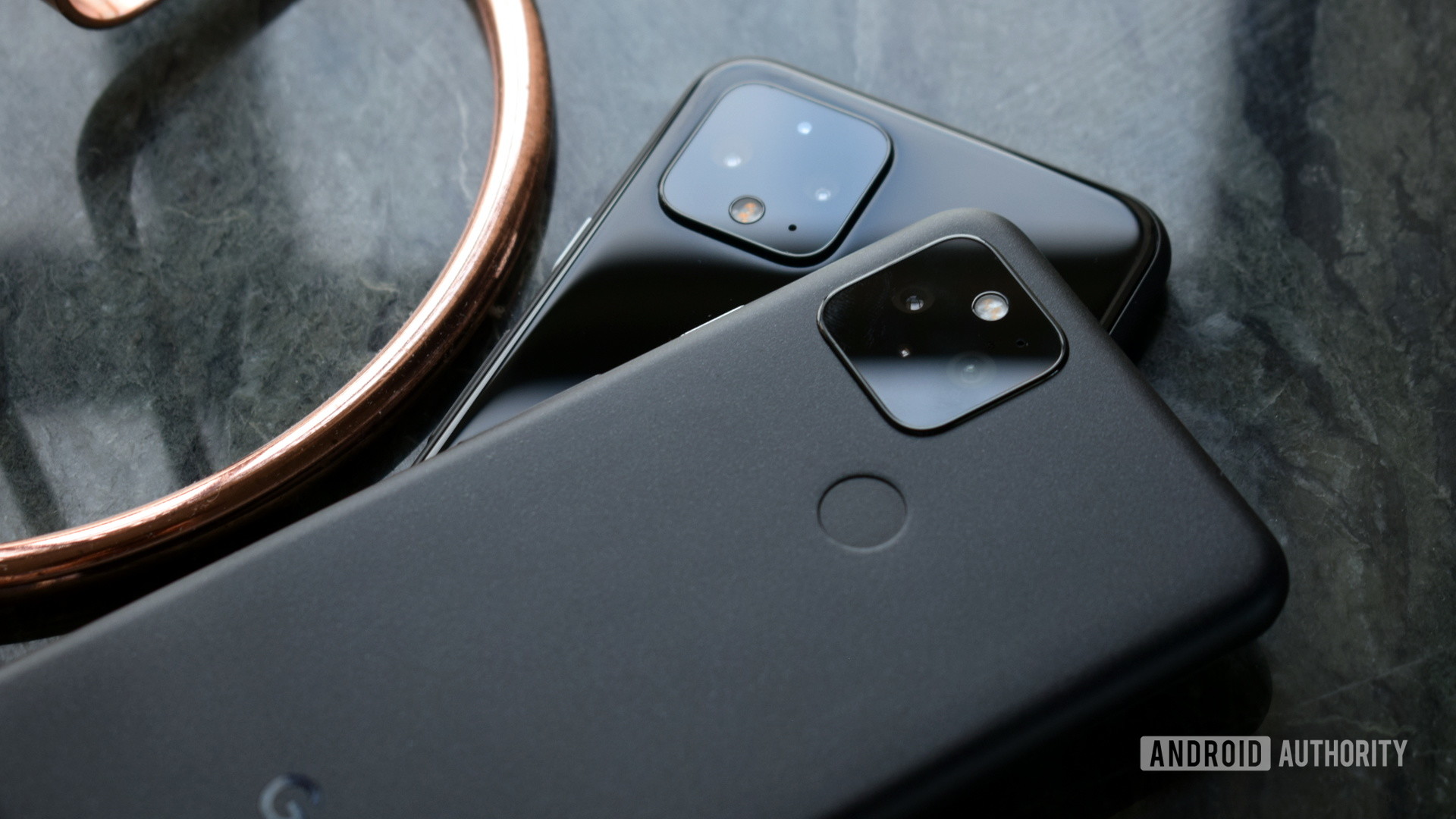
The Pixel 5 is great, but we need to see how it stacks up against the competition before you go out and buy it. In this article, we’re looking to see how the latest flagship device from Google compares with last year’s Pixel 4 series. We’ll talk about design, specs, and other features in detail to help you decide which handset comes out on top in the Google Pixel 5 vs Pixel 4 battle and whether or not you should upgrade. Let’s dive in.
Google Pixel 5 vs Pixel 4
Specs
| Google Pixel 5 | Google Pixel 4 | Google Pixel 4 XL | |
|---|---|---|---|
Display | Google Pixel 5 6-inch OLED 2,340 x 1,080 resolution, 432ppi 19.5:9 aspect ratio 90Hz refresh rate Gorilla Glass 6 | Google Pixel 4 5.7-inch pOLED 2,280 x 1,080 resolution, 444ppi 19:9 aspect ratio 90Hz refresh rate Gorilla Glass 5 | Google Pixel 4 XL 6.3-inch pOLED 3,040 x 1,440 resolution, 537ppi 19:9 aspect ratio 90Hz refresh rate Gorilla Glass 5 |
Processor | Google Pixel 5 Qualcomm Snapdragon 765G | Google Pixel 4 Qualcomm Snapdragon 855 | Google Pixel 4 XL Qualcomm Snapdragon 855 |
GPU | Google Pixel 5 Adreno 620 | Google Pixel 4 Adreno 640 | Google Pixel 4 XL Adreno 640 |
RAM | Google Pixel 5 8GB | Google Pixel 4 6GB | Google Pixel 4 XL 6GB |
Storage | Google Pixel 5 128GB | Google Pixel 4 64GB, 128GB | Google Pixel 4 XL 64GB, 128GB |
MicroSD | Google Pixel 5 No | Google Pixel 4 No | Google Pixel 4 XL No |
Battery | Google Pixel 5 4,080mAh 18W charging Qi wireless charging Reverse wireless charging | Google Pixel 4 2,800mAh 18W fast charging Qi wireless charging | Google Pixel 4 XL 3,700mAh 18W fast charging Qi wireless charging |
Cameras | Google Pixel 5 Rear: 12.2MP, f/1.7 aperture, 1.4µm pixels, optical + electronic image stabilization 16MP, f/2.2 aperture, 1 micron pixel, ultra-wide (107-degree FoV) 4K at 60fps/30fps Front: 8MP sensor, f/2.0 aperture, 1.12µm pixels, fixed focus, 83-degree FoV | Google Pixel 4 Rear: 12.2MP Dual-Pixel, ƒ/1.7 aperture, 1.4μm, 77 degree FOV, OIS + EIS, PDAF 16MP telephoto, ƒ/2.4 aperture, 1.0μm, 52 degree FOV, OIS + EIS, PDAF Front: 8.1MP, ƒ/2.0, 1.22μm, 90 degree FOV | Google Pixel 4 XL Rear: 12.2MP Dual-Pixel, ƒ/1.7 aperture, 1.4μm, 77 degree FOV, OIS + EIS, PDAF 16MP telephoto, ƒ/2.4 aperture, 1.0μm, 52 degree FOV, OIS + EIS, PDAF Front: 8.1MP, ƒ/2.0, 1.22μm, 90 degree FOV |
IP rating | Google Pixel 5 IP68 | Google Pixel 4 IP68 | Google Pixel 4 XL IP68 |
Headphone jack | Google Pixel 5 No | Google Pixel 4 No | Google Pixel 4 XL No |
Sensors | Google Pixel 5 Proximity / ambient light sensor Accelerometer Gyrometer Magnetometer Pixel Imprint fingerprint sensor Barometer Spectral and flicker sensor | Google Pixel 4 Active Edge Motion Sense Dot projector Soli radar Accelerometer Ambient Light Sensor Barometer (Altimeter) Face ID Gyroscope Proximity | Google Pixel 4 XL Active Edge Motion Sense Dot projector Soli radar Accelerometer Ambient Light Sensor Barometer (Altimeter) Face ID Gyroscope Proximity |
Software | Google Pixel 5 Android 11 | Google Pixel 4 Android 10 | Google Pixel 4 XL Android 10 |
Dimensions and weight | Google Pixel 5 144.7 x 70.4 x 8mm 151g | Google Pixel 4 68.8 x 147.1 x 8.2mm 162 g | Google Pixel 4 XL 75.1 x 160.4 x 8.2mm 193g |
Colors | Google Pixel 5 Just Black, Sorta Sage | Google Pixel 4 Just Black, Clearly White, Oh So Orange | Google Pixel 4 XL Just Black, Clearly White, Oh So Orange |
Design
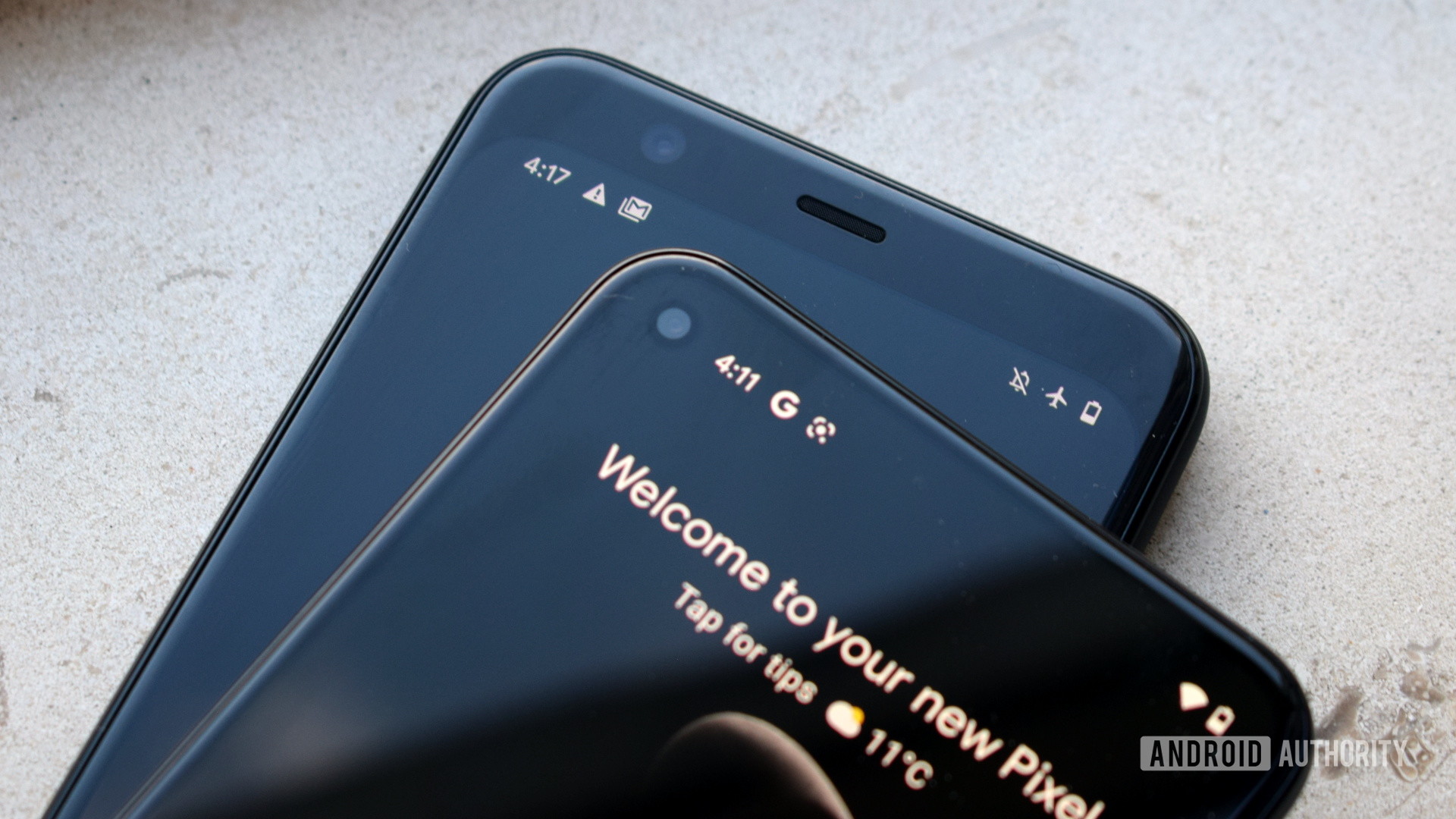
The Pixel 5 and Pixel 4 are very similar at first glance, but there are important design differences between them when you look closer. The first one is that the Pixel 5 has a punch-hole display with minimal bezels surrounding it. The Pixel 4 and 4 XL, on the other hand, don’t have a cutout of any sort. Both phones sport slightly thicker bezels, with the top bezel containing an array of missing sensors from the Pixel 5. This gives them a lower screen-to-body ratio compared to the Pixel 5.
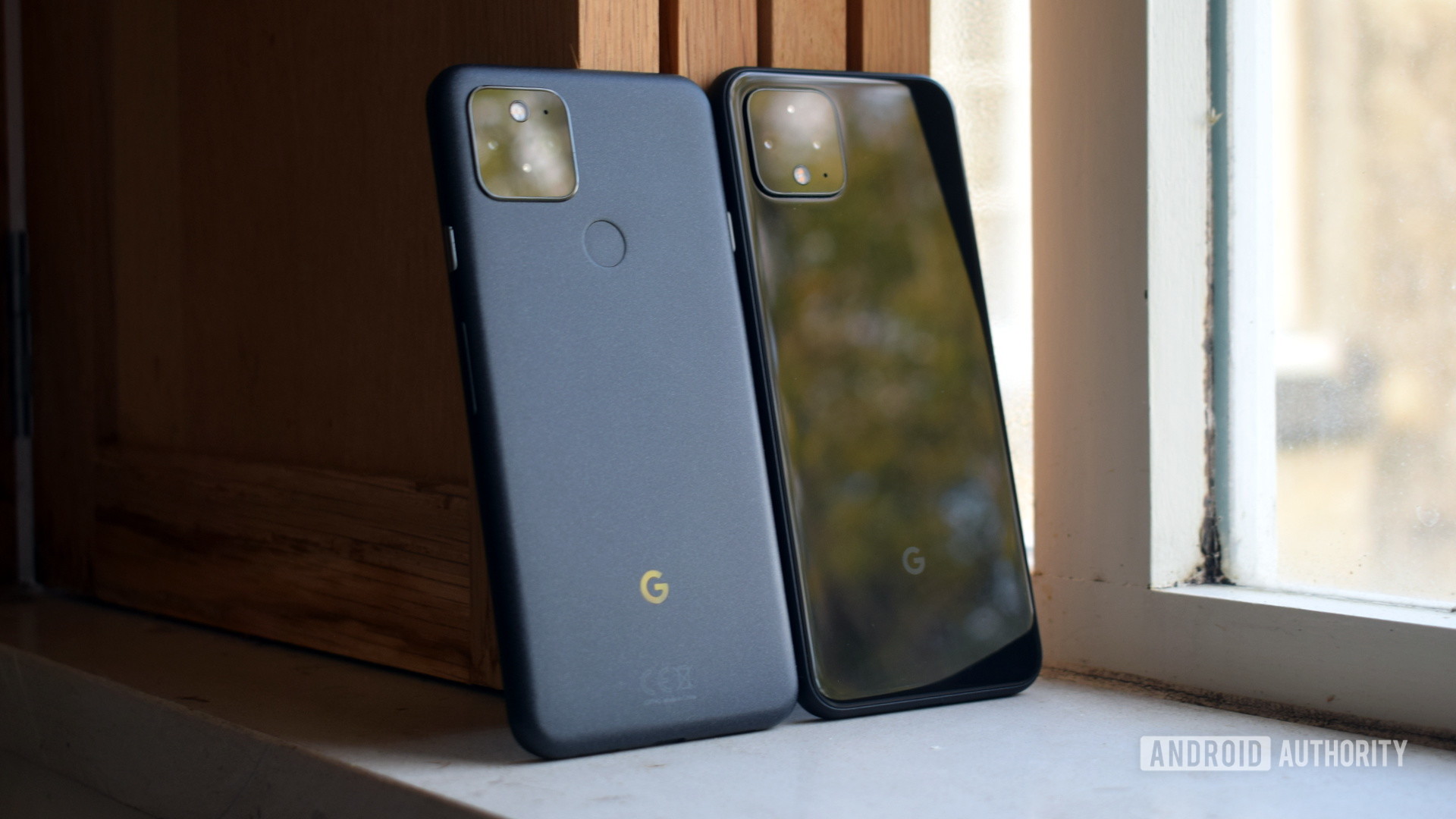
Then there’s the material. The Pixel 5 has an aluminum back with a material bio-resin coating, while the Pixel 4 phones have a glass back. Which is better depends on personal preference, but what’s important to note is that both look and feel premium. Aluminum has the advantage of being more durable and less of a fingerprint magnet, though.
Read next: Google Pixel 5 vs Pixel 4a 5G vs Pixel 4a — Which should you buy?
Next up are the color options. The new Pixel 5 comes in Just Black and Sorta Sage, which can be best described as greenish. It’s a unique colorway, although it won’t be to everyone’s liking. The Pixel 4 phones also come in Just Black, as well as Clearly White and — if you can find one — an Oh So Orange limited edition. All of these color options come with a contrasting power button. Unfortunately, you don’t get that with the Pixel 5.
These are the main design differences you need to be aware of, although there are a few others. You’ll find a fingerprint scanner at the back of the Pixel 5. In contrast, the Pixel 4 series eschews a fingerprint reader and instead relies on those aforementioned sensors in the top bezel for 3D Face Unlock.
Features
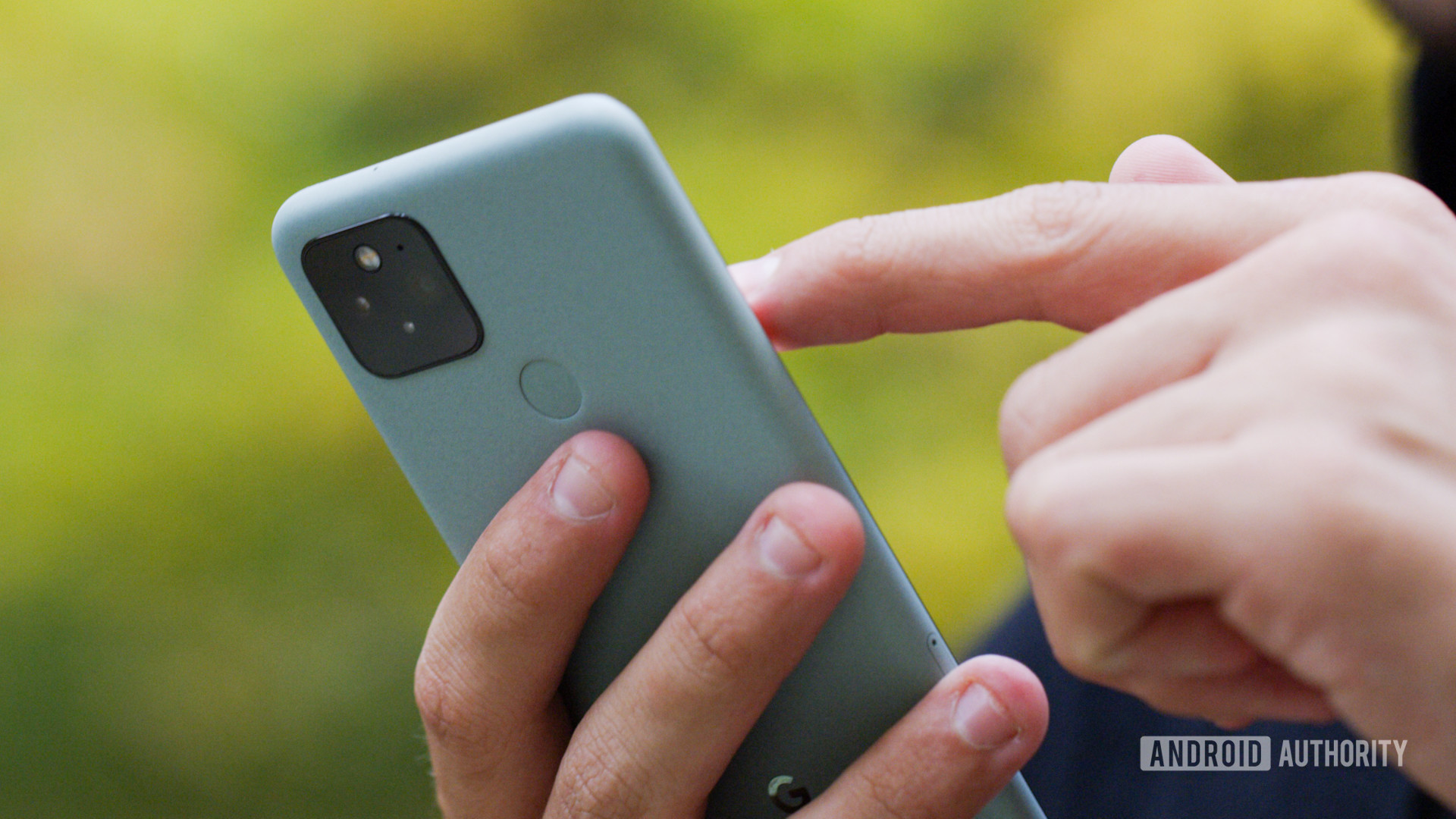
This is where things get interesting. The Pixel 5 isn’t a true flagship phone in the traditional sense. Instead, it falls more into the growing premium mid-range category, including phones like the Samsung Galaxy S20 FE and LG Velvet. The Pixel 4 phones, on the other hand, were flagship devices at launch, sporting one of the best chipsets available at the time and a (mostly) bleeding-edge specs sheet.
That doesn’t necessarily mean that the Pixel 4 series offers more than its successor, however. While the Pixel 5 has less power under the hood, it makes up for it in other areas.
The Pixel 5 is a downgrade in some areas and an upgrade in others.
Let’s start with the displays. The Pixel 5 sports a 6-inch screen, making it quite compact. Google’s Pixel 4 features a smaller 5.7-inch panel, while the XL model comes with a larger 6.3-inch display. The standard Pixel 4 and Pixel 5 have Full HD+ resolution displays and a 90Hz refresh rate, but the Pixel 5 does use Gorilla Glass 6 as opposed to Gorilla Glass 5 found on its predecessors. You can argue the Pixel 4 XL has a slight advantage thanks to its Quad HD+ panel.
A bigger difference between the phones is when it comes to performance. Google’s latest Pixel phone packs the Snapdragon 765G under the hood, which offers similar performance to the two-year-old Snapdragon 845. The Pixel 4 phones come out on top in this category, with both sporting the Snapdragon 855 SoC.
Read more: Snapdragon 765G vs Snapdragon 865: How will the Pixel 5 stack up?
Although there is a difference between the SD765G and the SD855, the former is still very snappy and can handle day-to-day tasks without an issue. If all you do is browse the web, watch videos, and chat with friends, the chipset in the Pixel 5 will be more than adequate. But if you love playing demanding 3D games and want as much speed as possible, the Pixel 4 series is still a better option.
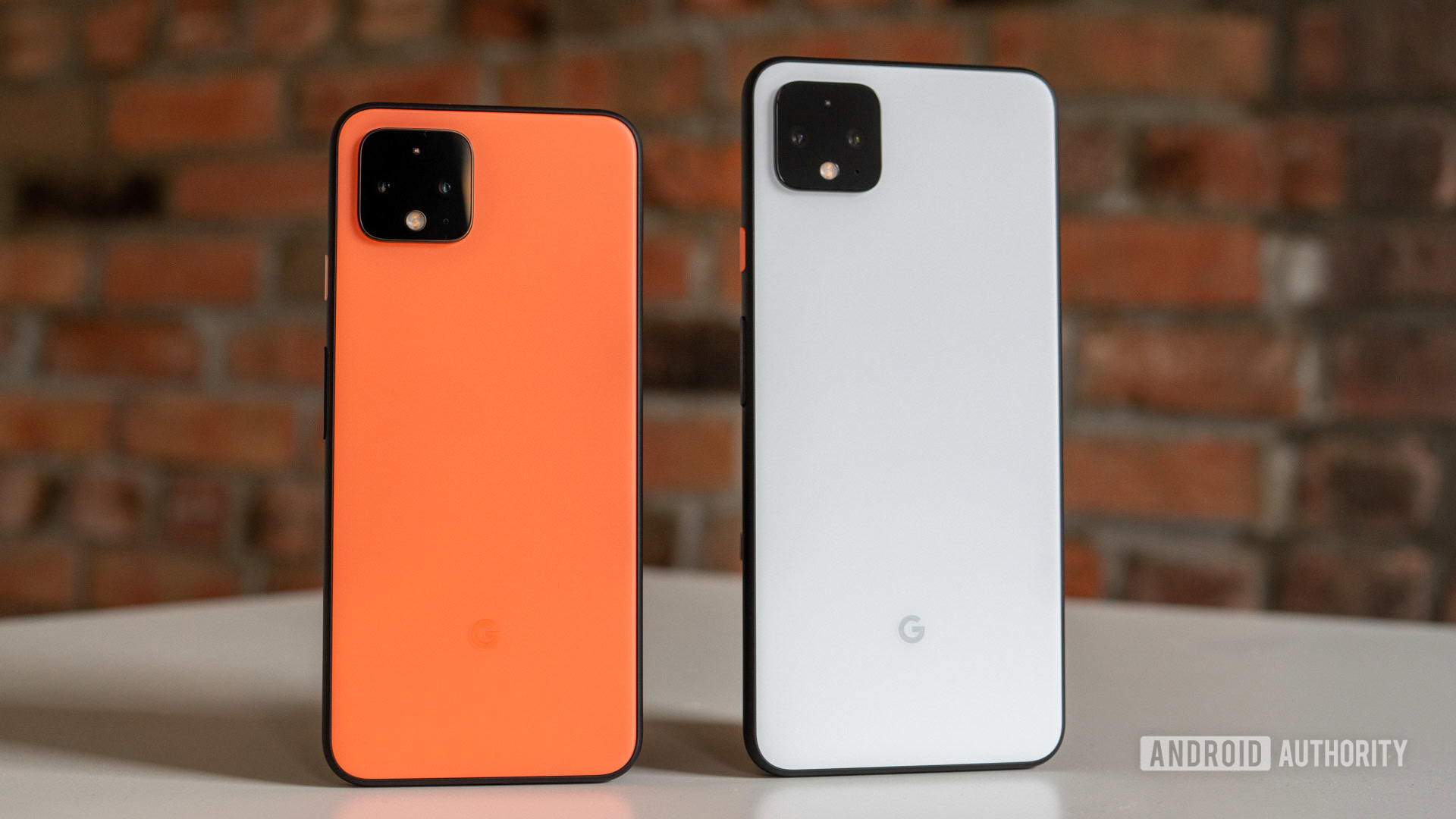
The Pixel 5 pulls slightly ahead of the Pixel 4 and Pixel 4 XL when it comes to memory. The new device has 8GB of RAM and 128GB of storage as standard. You only get 6GB of RAM on the last year’s Pixels, while the base variants of the phones come with 64GB of storage — although 128GB options are available for a higher price.
The Pixel 5 has its predecessors beat when it comes to the battery as well, as it’s powered by a 4,080mAh cell. The batteries in the Pixel 4 and 4 XL only come in at 2,800mAh and 3,700mAh. Plus, the newer, less power-hungry chip will get more out of that larger cell, too. Battery life was one of the biggest issues with the Pixel 4 — especially the vanilla model — so we’re happy Google didn’t make the same mistake with its latest phone.
The Pixel phones have always been all about the camera experience, and the Pixel 5 is no different. It sports the same main 12.2MP sensor you get with the Pixel 4 and comes with Google’s software enhancements, including Night Sight and ASTRO Mode. However, the phone ditches the 16MP telephoto lens found on its predecessors for a 16MP ultra-wide camera. Instead, Google is relying on its Super Res Zoom software for zoom shots on the Pixel 5.
Also read: Google Pixel 5 wallpapers — Download all the mega-colorful designs here
On the front, the Pixel 5 and Pixel 4 phones all feature an 8MP selfie shooter. The Pixel 4 also has a Soli radar that allows for 3D Face Unlock and Motion Sense. The latter lets you do things like skip tracks, snooze alarms, and silence calls with swiping gestures above the device, all without touching it. The Pixel 5 relies on a rear-mounted fingerprint scanner for unlocking it instead and misses out on Motion Sense.
Other differences between the phones are that the Pixel 5 offers 5G support, while the Pixel 4 only supports 4G LTE. All three phones support wireless charging, but you only get reverse wireless charging on the Pixel 5.
Price and availability
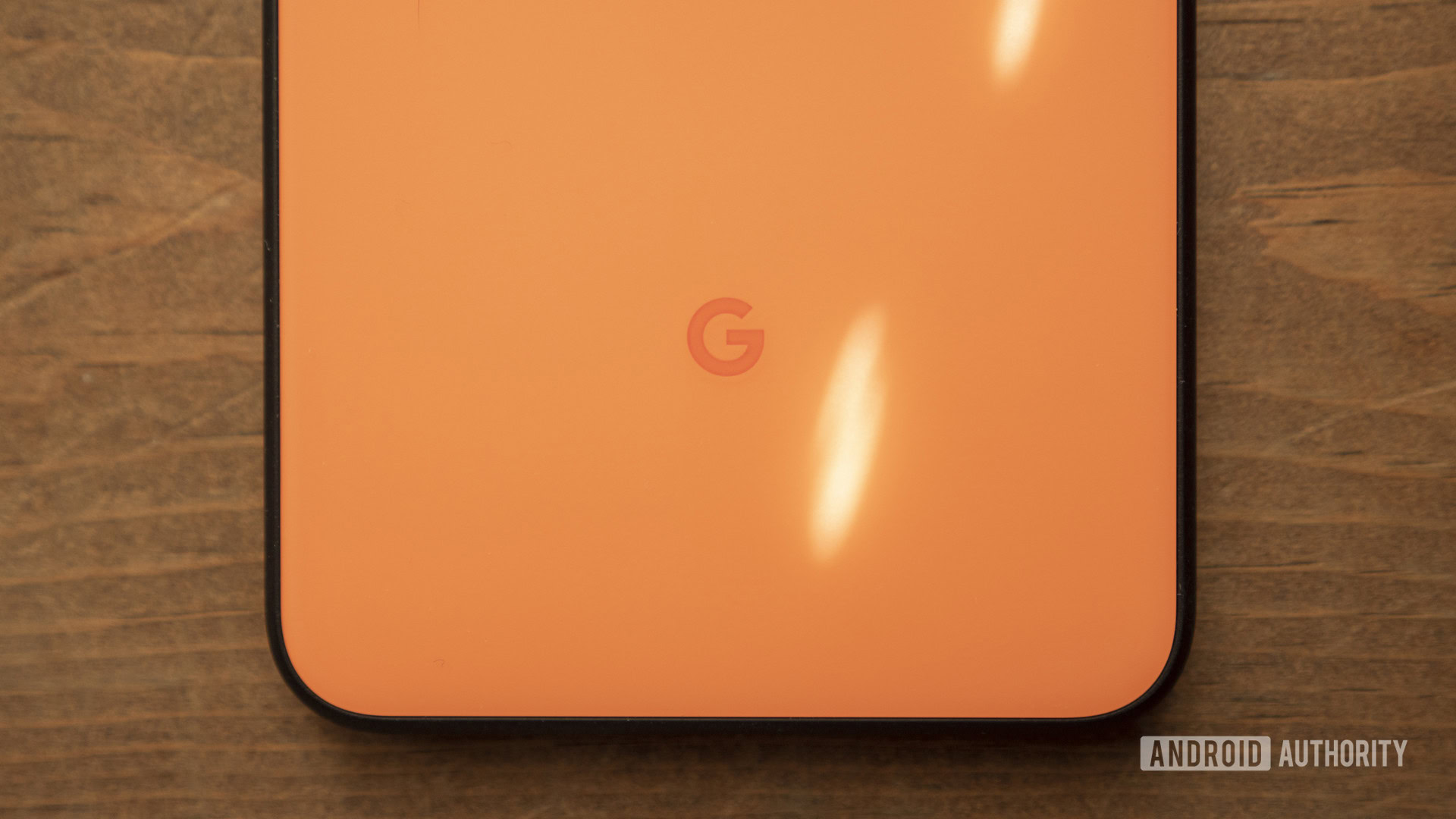
- Google Pixel 5 — $699/£599/€629 MSRP
- Google Pixel 4 XL (64GB) — $899/£829/€899 MSRP
- Google Pixel 4 (64GB) — $799/£669/€749 MSRP
The Pixel 5 launched with a price tag of $699. The Pixel 4 series was more expensive when it made its debut. The regular model started at $799, while the XL model sold for $899. If you wanted to get your hands on the 128GB version, you had to dish out an additional $100.
But since the Pixel 4 phones have been on the market for about a year, their price has come down quite a bit. You can currently get a significant discount on the regular Pixel 4 and XL model on Amazon, which means both are cheaper than the Pixel 5 at the moment.
An important thing to keep in mind is that Google discontinued the Pixel 4 series back in August 2020. It no longer sells it, but various retailers, including Amazon, still have it in stock — for now at least. So if you want to get your hands on one, you’ll have to move fast.
Google Pixel 5 vs Pixel 4: Should you upgrade?
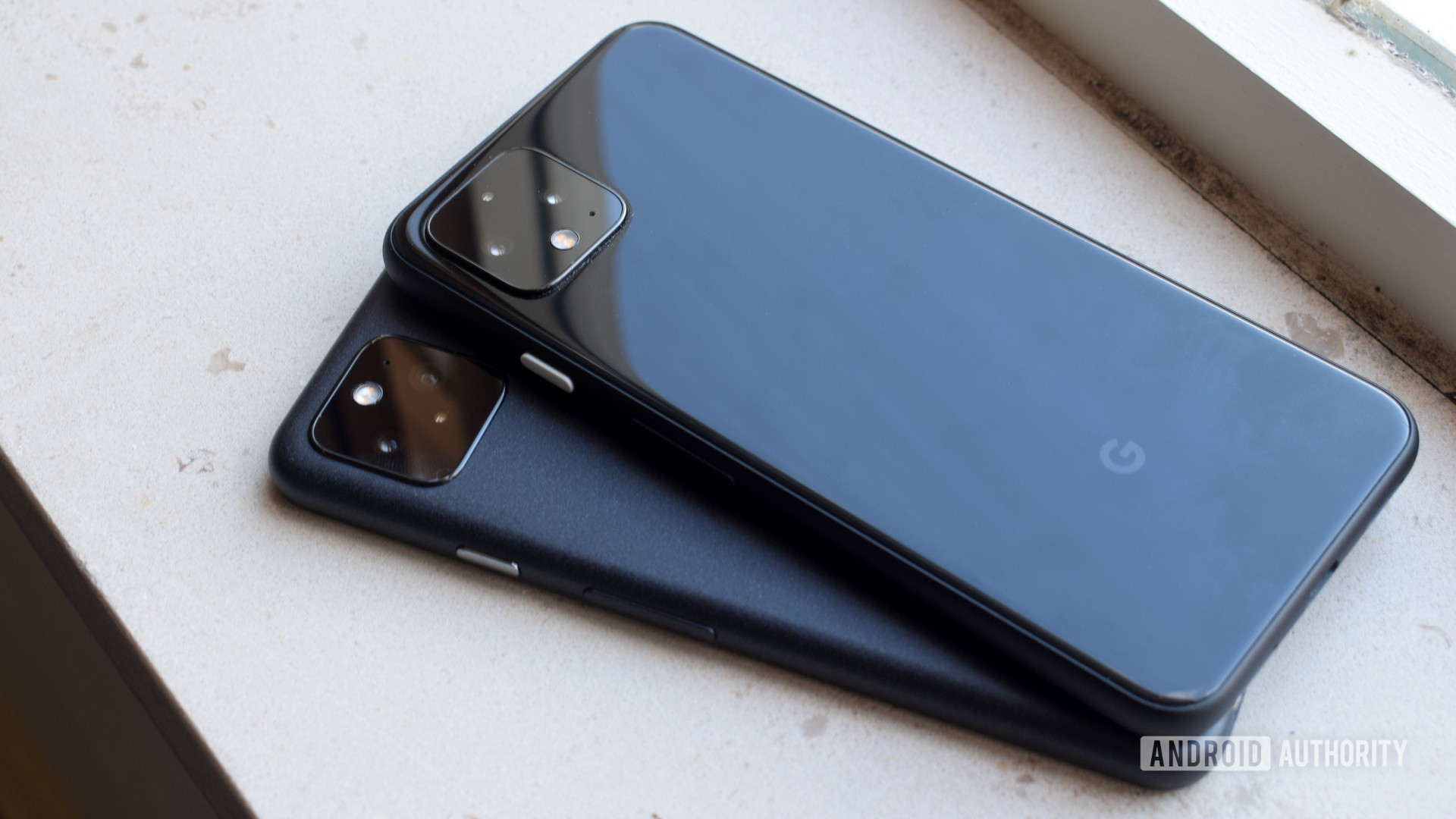
The winner of the Pixel 5 vs Pixel 4 comparison depends on what your wants and needs are. If you already own a Pixel 4 or 4 XL, I’d say an upgrade isn’t necessary. Sure, you’re going to get a few extra features your current phone lacks if you opt for the Pixel 5. You’ll also be sacrificing some raw power and additional features like Face Unlock and Motion Sense.
For example, upgrading means you’ll get a phone with 5G support, more RAM, a bigger battery, a more modern design, and extra features like reverse wireless charging. But you’ll have to give up a more powerful chipset, and the Soli radar with its 3D face unlock, among other things. If the specs and features you’ll gain mean more to you than the ones you’ll lose, an upgrade might make sense for you. But if not, sticking with the Pixel 4 or 4 XL is a better choice for now.
Google Pixel 5 vs Pixel 4: Which should you buy?
For those considering whether to buy a Pixel 4 or the Pixel 5 phone, things are a bit more complicated, especially since Google’s 2019 flagships are currently cheaper than the Pixel 5. If you’re a gamer or just someone who wants as much power and speed from your phone as possible, a Pixel 4 phone is likely the way to go. The same applies if Face Unlock is super important to you.
But if the faster chipset and advanced biometrics don’t mean that much to you, the Pixel 5 should be the better choice. The Snapdragon 765G is still a capable chipset and offers 5G support you don’t get on the Pixel 4. The handset also looks nicer, has a bigger battery, and comes with a few extra features already mentioned. And since it’s newer, you can expect it to get upgraded to Android 12, 13, and 14, while software support for the Pixel 4 will end with Android 13.
If you’re after an even cheaper Google phone in 2020, there’s also the Pixel 4a and Pixel 4a 5G to consider. These make further trade-offs on specs and features beyond the Pixel 5, but will save you a few bucks.

Thank you for being part of our community. Read our Comment Policy before posting.